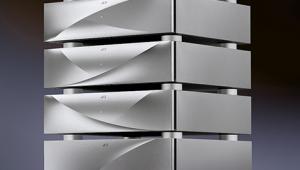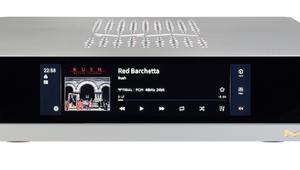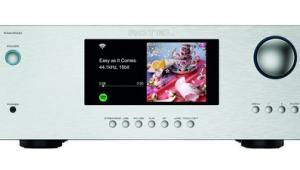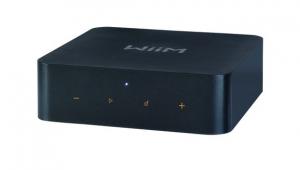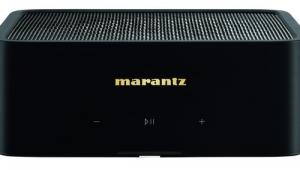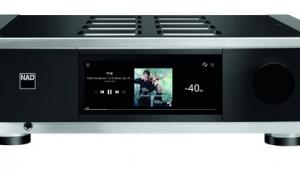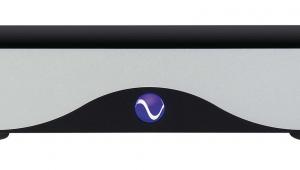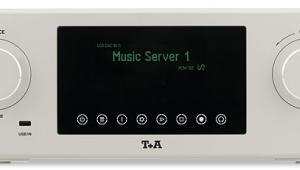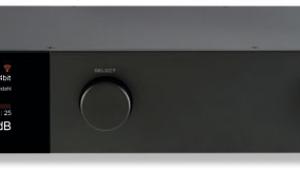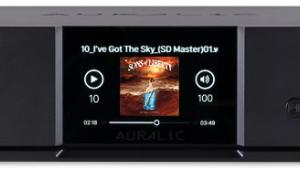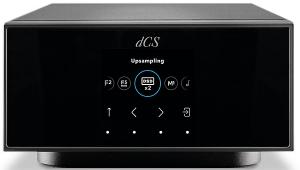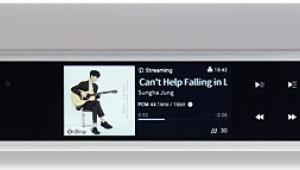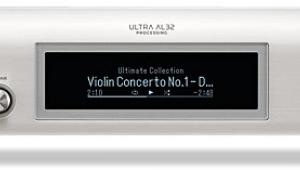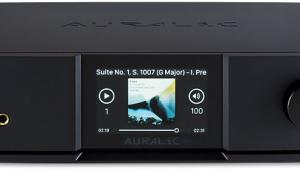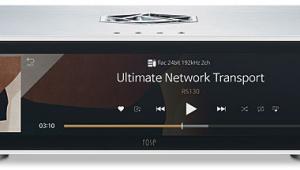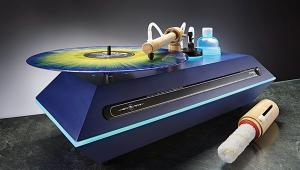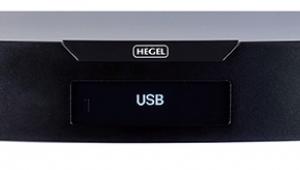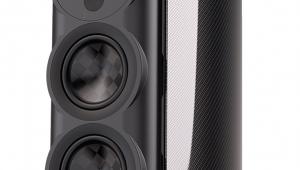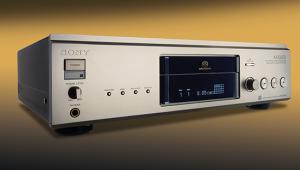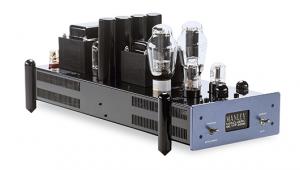Auralic Aries G2.1 Music Library/Server

 Now housed in a 'chassis within a chassis', featuring an uprated USB interface and slicker Lightning OS, Auralic's G2.1 series kicks off with the Aries streaming transport
Now housed in a 'chassis within a chassis', featuring an uprated USB interface and slicker Lightning OS, Auralic's G2.1 series kicks off with the Aries streaming transport
At first glance, Chinese company Auralic's range looks baffling, such is the choice of similar-looking units – and it's becoming more so with the arrival of new 'second generation' G2 models, confusingly distinguished by the addition of a '.1' suffix on its product designations. In the new lineup there's the Vega G2.1 streaming DAC, at £5999, the Sirius G2.1 upsampling processor at the same price, the £7999 Leo GX.1 master reference clock, and the product we have here, the £4199 Aries G2.1, described as a 'Wireless Streaming Transporter'.
The Aries G2.1 is for those who already have a high-quality DAC in their system but want to add extensive network audio capability. This is an all-digital device, with outputs on USB, coax, optical and AES/EBU, plus an HDMI port hosting a proprietary Lightning-Link (not to be confused with Apple's Lightning connector) which offers a clock-synchronised audio connection as well as system control, direct to the company's other units.

Everything On Tap
As well as its network capability, it can also play content stored on USB drives. It's also possible to play, or rip from, an external USB CD drive with optional internal 2.5in HDD or SSD stores installed inside the Aries G2.1 by way of creating an integral library. Networking is achieved via Gigabit Ethernet and tri-band Wi-Fi, with two antennae being provided for the latter. My time with the Aries G2.1 suggests there's no sound quality difference between wired and Wi-Fi connections, but if you have a fairly busy wireless environment in your home then I'd opt for the wired Ethernet for hi-res audio.
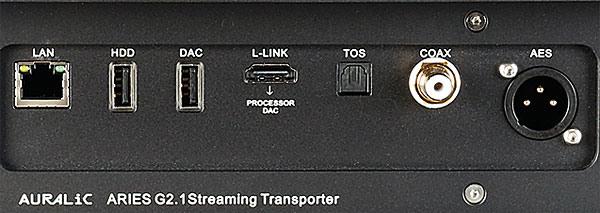
Neither is there any shortage of format compatibility here. The Aries G2.1 will handle the lot from 384kHz/32-bit to DSD512, although of course these upper limits are only available when connecting to a suitable DAC via the USB port or the Lightning-Link into an Auralic DAC. The limitations of the S/PDIF outputs mean they can't handle these higher-rate formats, though it is possible to output DSD64 converted to PCM in the DoP format, and the unit will also downsample higher rate PCM if the DAC is limited to, say, 192kHz.
It's worth noting here that, unlike some similar products whose 'enhanced' digital output, courtesy of onboard digital signal processing, is only available on a specific connection – such as Grimm Audio's MU1 [HFN Dec '20] – the Aries G2.1's onboard processing feeds all its output options.
Compatibility with MQA is claimed, with the caveat that 'Auralic streaming devices are capable of decoding MQA files using Auralic's proprietary resampling and de-blurring method. This technology is not an MQA-created or MQA-licensed process. Auralic has no official relationship with MQA and its allies'. Er, right – so it does it, but not officially, and if you're minded to read more on the background to all of this, click through to us.auralic.com/pages/auralic-vs-drm for a fuller explanation of the company's beef with MQA.
Good To Go
There's no such qualification on the Aries G2.1's Roon-ready certification. Auralic is front and centre on the Roon Labs partners list, so all you need is a Roon Core on your computer or a standalone device, and you're good to go. Neither does this unit shirk on the streaming front, for in addition to its ability to play music from a shared folder or UPnP/DLNA server on the home network, it can also handle Tidal, Highresaudio and Qobuz Sublime+ streaming services, plus Internet radio, AirPlay, Bluetooth and Songcast.
The company's latest version of its Lightning OS is just part of the enhancements involved in the creation of this '.1' design – at the heart of this new model is the latest generation of the company's hardware platform, Tesla G2, which offers twice the processing power of, and is 50% faster than, the original version.
In addition to this, the new model uses a double-layer enclosure, with an inner layer of copper within the aluminium outer, and a high-mass base on multi-spring isolation feet. Also new for the '.1' is greater power for the USB HDD connection, in order to allow it to work with more storage devices, an enhanced USB DAC compatibility plus improved galvanic isolation to keep noise at bay. The latter is comprehensively applied on the unit's mainboard where the clock, digital transmission and main processor sections are all isolated.
All this has been achieved for a relatively minimal price increase over the G2 model – the Aries G2.1 is £300 more expensive. What's more, existing owners of Auralic equipment wanting to match their older components can take advantage of the company's offer to build the new model into its old-style casework if required.

